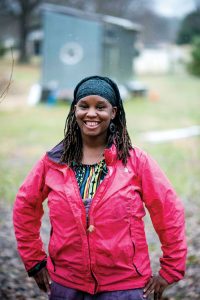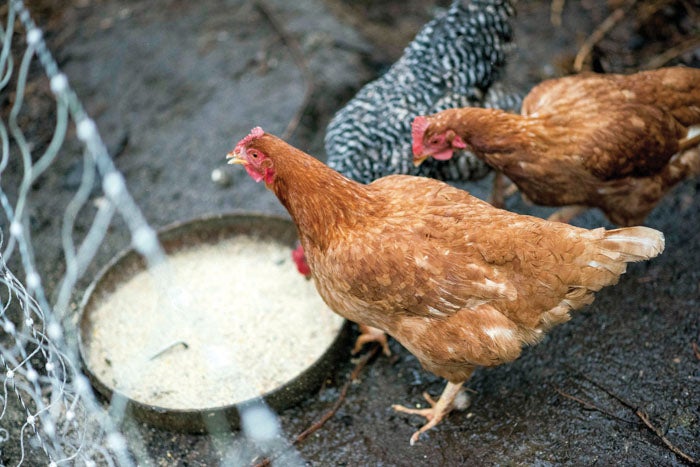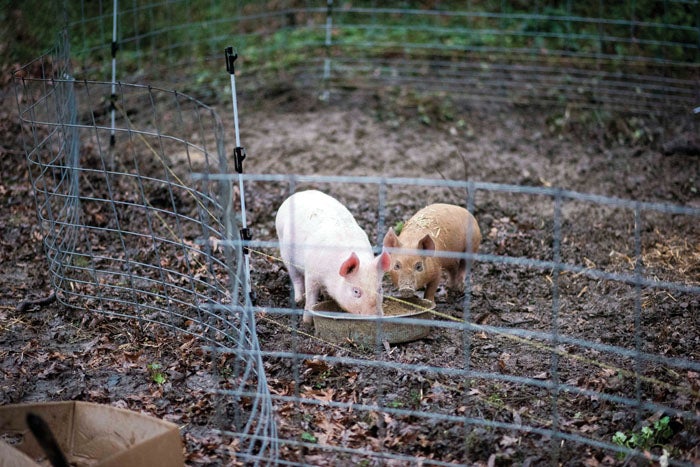Black History Month: Chantel Johnson draws inspiration from activist Fannie Lou Hamer
Published 12:00 am Wednesday, February 6, 2019
GRANITE QUARRY — Chantel Johnson was born in the South Side of Chicago and eventually made her way to Salisbury. She is now a homesteader, raising pigs, chickens and, during the spring and summer, microgreens.
Johnson has a bachelor’s degree from Carleton College in Northfield, Minnesota, and a master’s degree in social work from the University of Washington in Seattle.
She is also a trained doula, helping women in labor and delivery but not necessarily delivering the baby.
Johnson started homesteading about 2016 and is mostly self-taught. She has done research and asked lots of questions of a lot of different people.

Chantel Johnson says she is proud to be a farmer. Jon C. Lakey/Salisbury Post
Her goal for 2019 is to be “unapologetically black.” Johnson said she has been afraid of being a black woman in agriculture. More and more women and people of color have asked her how to be a homesteader.
“I’m not trying to be a white man anymore,” she said. “I am a black woman and not ashamed. And I am a farmer.”
She recently spoke to the Salisbury Post about who inspires her during Black History Month.
Salisbury Post: When you think about black history, who inspires you and why?
Johnson: When I think about black history, Fannie Lou Hamer comes to mind.
Hamer is largely known for her voter advocacy work. She is often described as a fierce woman with great intelligence. However, before her work in the civil rights movement, she spent most of her life as a sharecropper — a farmer.
Hamer and her family worked hard and dealt with a lot of economic hardship and racism. When she began doing civil rights work, she developed a number of community programs to help elevate poor black folks out of poverty and to create more business opportunities; essentially, to help black folks live more self-sufficient lives.
Two of the community programs that resonated to me were the Freedom Farms Corp., a land cooperative that afforded black folks with farmland to live on and eventually purchase, and the Fannie Lou Hamer Day Care Center, a place to provide child services.
This queen inspires me because she gave the system of sharecropping a try and, when the system failed, she utilized a platform to bring attention to the struggles in her community and developed community-centered programs to improve their condition.
Post: How do you live out her ideals?
Johnson: Although Fannie Lou Hamer believed in the power of democracy, she also understood that blacks needed economic liberation and that was best achieved through providing land opportunity for farming and family and child care services. I live out Hamer’s ideals through my work at Off Grid in Color. The vision of my business is to develop a sanctuary for health wellness. A place where people can nourish their bodies through good food, heal the mind through counseling, and nurture their wombs through birth coaching.
Post: What legacy do you hope to leave?
Johnson: The work that I’m doing is not revolutionary. Fannie Lou Hamer left the blueprint decades ago.
I want to leave a legacy of community building, earth collaboration, and economic liberation. Without our community, we are nothing. A community that works together grows together and lives forever. Mother Earth is our home and, when we work with her, she will provide all our needs.
As the community creates with and from the earth, we must be able to manage production and consumption of the goods and services produced, without constraint.
This Black History Month, I pay homage to Fannie Lou Hamer, who blazed the trail for me to continue the work of building self-sufficient and economically independent communities.





